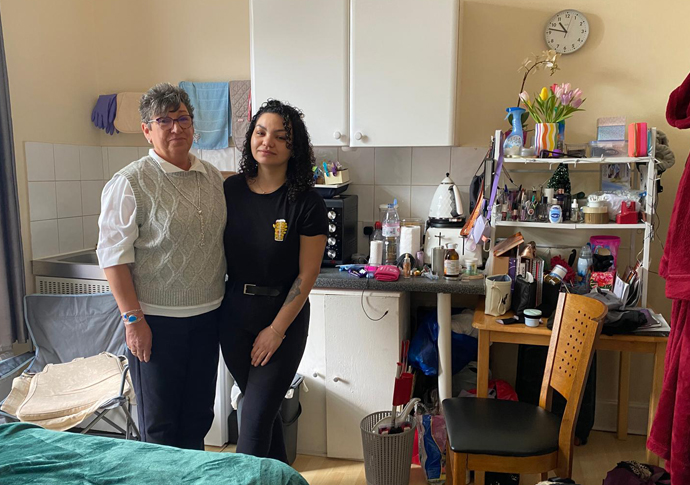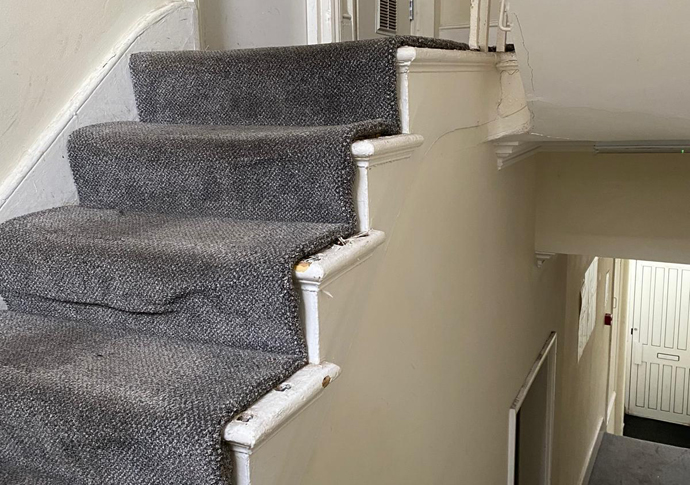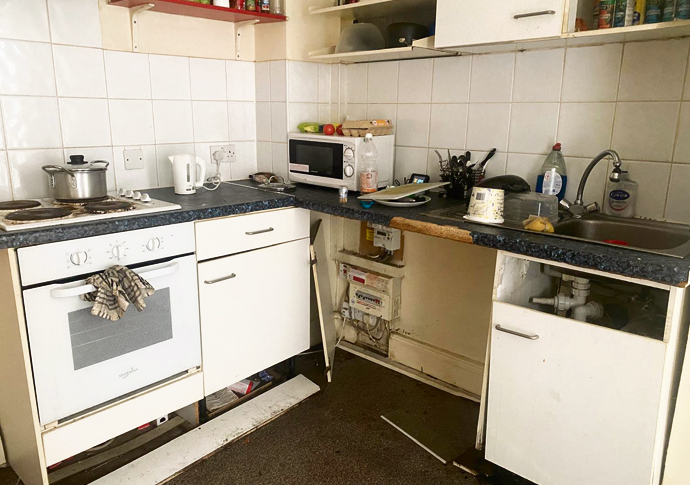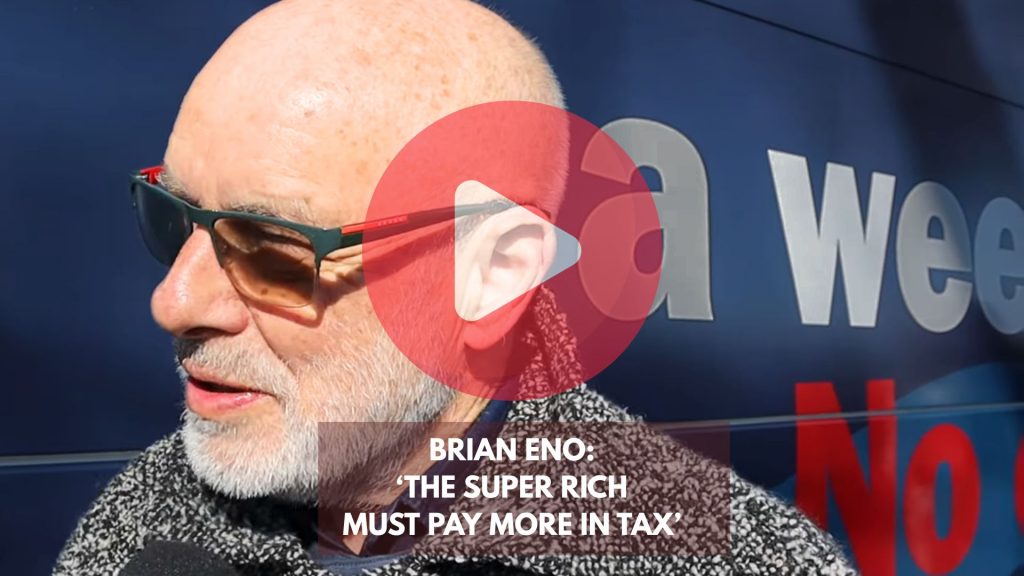Cockroaches, mould and issues over safety – and it costs £1,800 a month
Finsbury Park residents tell of conditions in temporary accommodation
Friday, 4th April 2025 — By Daisy Clague

Ashleigh Allen with her mum Jayne inside her Seven Sisters Road flat
Watch our online politics channel, Peeps, on YouTube
RESIDENTS in temporary accommodation in Finsbury Park have reported cockroach infestations, black mould and other safety issues that take weeks or months to be addressed in a building where a small studio flat costs councils almost £2,000 per month in rent.
Owned by a private landlord and maintained by property management company Theori Housing, the seven-room house on Seven Sisters Road provides temporary accommodation for people from various London boroughs, including Islington, while they wait to be offered a permanent council home.
Care leaver and father Tyrell Nicholls, 25, has lived in the block for almost two years and his studio flat costs Islington Council £950 per month.
He said: “Theori does nothing. We found a mouse running about and my house is always clean – that’s why I was so confused.
“I called them and they said three weeks after you move in anything to do with any rodents is all your problem. You pay for that. We’ve asked them to fix the banisters – they say ‘that’s your problem, you deal with that’.”
A banister in the communal hallway was ripped off in December and has not yet been fixed.

Residents have reported problems with banisters
Another resident, Ashleigh Allen, 28, told the Tribune she was met with a vomit and faeces-stained mattress, cockroaches and black mould in and underneath the fridge when she moved into her 14-square-metre balcony studio in the building six months ago.
“This month, she went without a hot shower for 12 days, despite reporting the problem to Theori.
Her accommodation costs £1,890 per month, which is paid for through housing benefit and other funding from her council, City of London.
“I contacted Theori every single day, writing emails, speaking to the staff daily. They just said the landlord wasn’t available. If the house was on fire, would you leave it burning just because the landlord isn’t going to get back to you?
“I can handle difficult situations but it feels like these are quite urgent things, and I’m not being treated even like a person.”
Ms Allen said that while she is “grateful” to have been offered temporary housing, her mental health has deteriorated due to the repairs delays.
Most temporary accommodation in London is provided by private landlords, who lease or rent it to councils, who in turn let it to homeless households until they can be provided with a permanent home – a process that can take years due to a lack of social housing.
In this case, Theori manages the property on the landlord’s behalf.
Theori received more than £69million from temporary accommodation contracts between 2019 and 2024 – the second-highest earning TA provider in the country, according to research by Inside Housing.

Tenant Kane Wilson’s kitchen in the building’s basement flat. Below: a cockroach in Ms Allen’s home

Ms Allen’s mother, Jayne Allen, added: “If [the landlord] was putting this on the market as a private rental, not in a million years would he get £1,890. So why is it that the councils are allowing the landlord to charge that?”
The landlord owns several rented properties in London.
Last year, they submitted a planning request to extend the ground floor and basement flats of the Seven Sisters Road property but Islington planning officers rejected it, saying it would result in “a substandard internal living environment” for future tenants.
The council’s refusal also stated that “the small bedsit-type units” on the upper floors failed to meet many of Islington’s policy requirements for new housing and were only acceptable because they already exist.
A Theori spokesperson said: “Our responsibility is to ensure that the property is in a condition that meets the minimum standards for temporary accommodation and we are committed to providing safe and decent living environments for all residents.
“Residents are also liable to ensure that the properties are maintained to a satisfactory standard. We have taken immediate action resolving the maintenance issues, ensuring that residents are provided with the support they need in a timely manner.”
Islington’s housing chief, Councillor John Woolf, said: “We expect all temporary housing providers to meet the ‘Setting the Standard’ commitments outlined in their agreement with the council and will always respond to concerns raised by residents. We recently received complaints about this property and have prioritised it for inspection. We will expect the provider to take prompt action to address any failure to meet the high standards we require.”
The landlord was contacted for comment.

